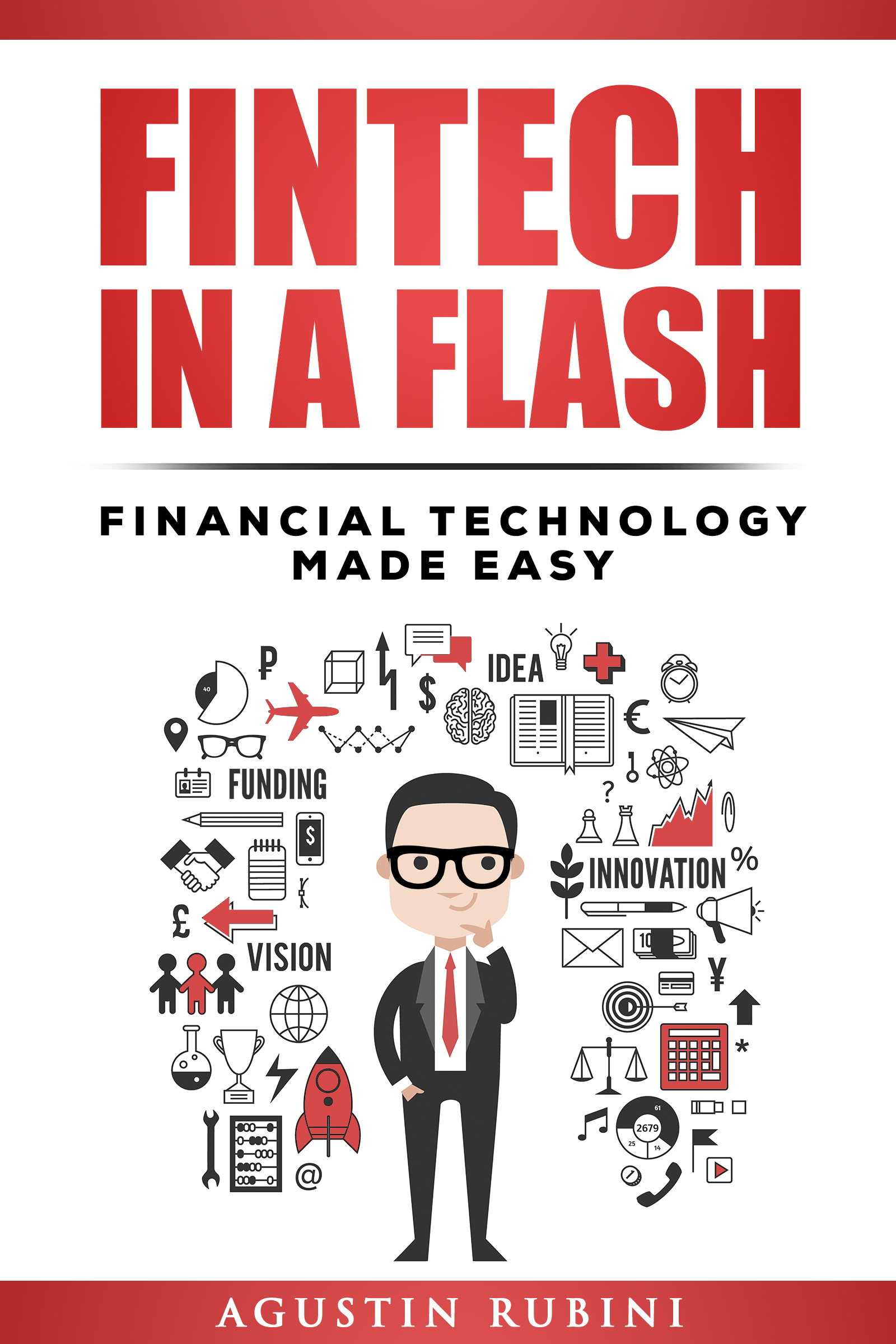
About the book
Finally a comprehensive guide to financial technology! The financial services technology industry is booming, with investment in excess of $20 billion just in the last year. There are more than 5000 fintech startups operating, and 50 of them have already reached a billion-dollar valuation. The scope of this market goes way beyound online payments. Financial technology promises to change the way we manage our money online, disrupting the landscape of the financial services industry is being disrupted. Understanding its many facets is the key to navigating the complex nuances of this global industry.
Fintech in a Flash is your comprehensive guide to the future of banking and insurance. The book aims to break down the key concepts in a way that will help you understand every aspect, so that you can take advantage of new technologies. Inside you’ll find an array of hot topics such as online payments, crowdfunding, challenger banks, online insurance, digital lending, big data, and digital commerce. It will make you rethink the way that you manage your money online, and even find new ways of making online payments. Comprehensive, organized, and detailed, this guide is your go-to source for everything you need to confidently navigate the ever-changing scene of this booming industry.
If you decide to buy this book now, you'll get:
Easy to understand explanations of what the 14 main areas of fintech are
The author's view on the future of each of these areas
Insight into the main fintech hubs in the world
Insight into the so called Unicorns, the fintech firms that have made it past a $1 billion valuation
More than 100 upcoming fintech companies to watch
About the Author:
Agustín Rubini is an argentinean-born economist, master in international business, and Director at Banking Innovations. Passionate about building the future of financial services, Agustín spends much of his time speaking and writing on financial technology and advising businesses on innovation and digital transformation. He is a specialist in driving changes in top class banks that want to lead in how customers manage their money online.
Tags:
fintech, financial technology, financial services technology, money online, online payment, online insurance, insurtech, investing online, wealth management online, wealthtech, regtech, cybercrime, digital lending, digital commerce, ecommerce, e-commerce.
Genre: BUSINESS & ECONOMICS / Banks & BankingI just launched. Got 350 downloads on first 3 days.
Now getting around 10 sales a day between paperback and kindle
What is the Fintech Industry?
The financial technology, or fintech, industry, refers to the group of companies that are introducing innovation into financial services through the use of modern technologies. Some fintech firms compete directly with banks, whilst others have partnered with them or supply them with good or services. What is clear is that fintech companies are improving the financial services world through introducing innovative ideas, allowing for speedy delivery and increasing competition.
Financial technology integrates various types of financial service into the day to day lives of customers. Millennials, as well as the generations coming up behind them, are used to technology and want to manage their money in an easy and quick manner, instead of walking to physical branches to perform transactions and other operations.
Fintech is redefining financial services in the 21st century. Originally, the term applied to technology used in the back-end of established trade and consumer financial institutions. It has expanded to include various innovations in technology, including cryptocurrencies, machine learning, roboadvice and the Internet of Things.
Areas of Fintech
In this section, we provide a sneak preview of what will be covered in the book. Feel free to skip to any chapter that interests you, or read the chapters in order.
In our New Entrants to Banking chapter, we look at the new business models that are being introduced to challenge traditional banking, such as aggregators and infrastructure providers. We also reflect on how open banking and APIs will change the industry.
| Language | Status |
|---|---|
|
Portuguese
|
Already translated.
Translated by Fernanda Belokurows
|
|
Spanish
|
Translation in progress.
Translated by Ana Hidalgo
|